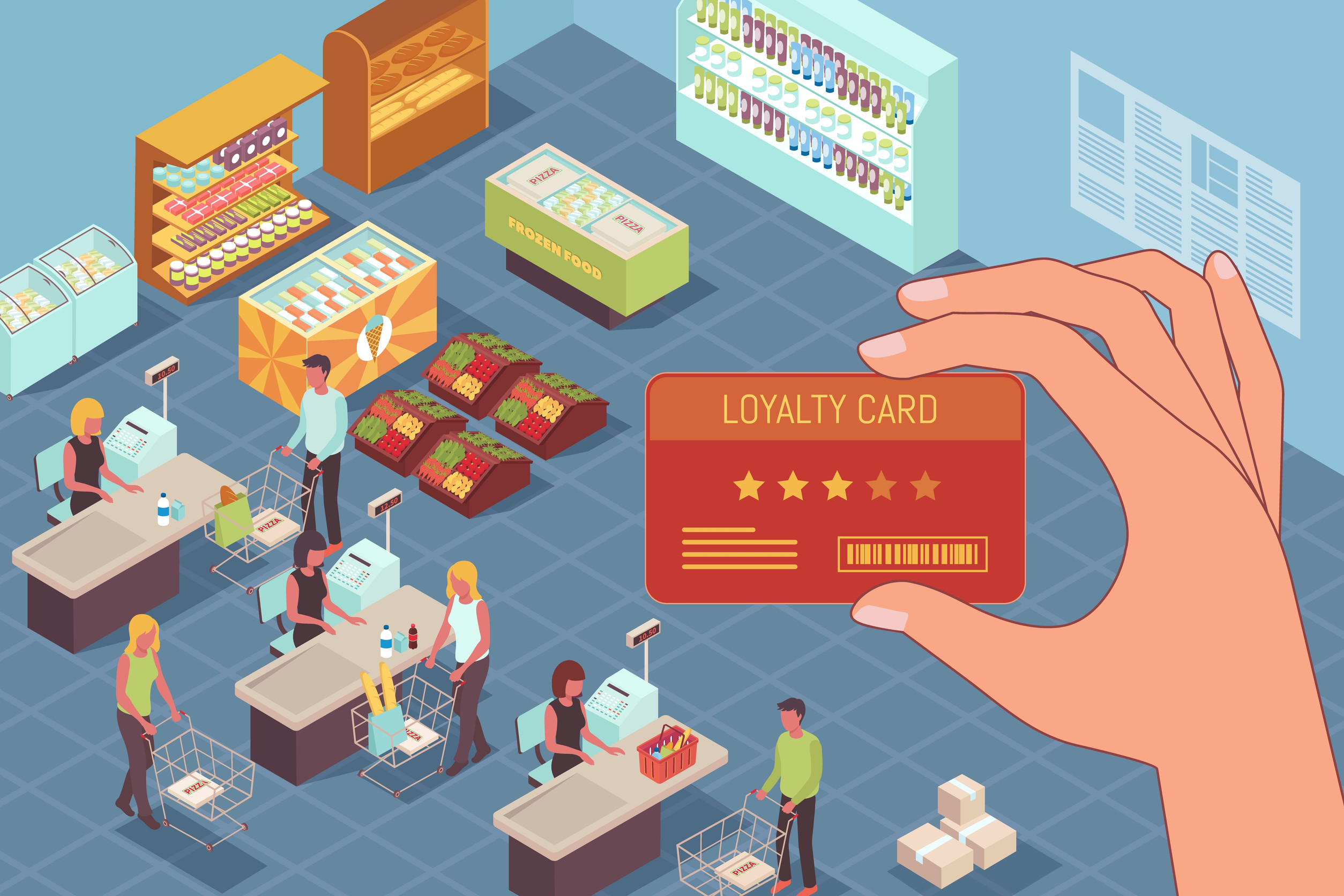
Every time a loyalty card gets scanned at the checkout counter, it feels like a small win—points earned, discounts unlocked, maybe even a free coffee on the horizon. But underneath that friendly reward system lies a vast world of data collection that most consumers don’t fully see. Many loyalty programs have evolved into sophisticated tracking systems that go far beyond what you’re buying. They collect personal behaviors, predict future decisions, and often sell or share this data with third-party companies.
In an era where privacy matters more than ever, it’s worth examining which loyalty cards are quietly tracking more than just purchases.
1. Grocery Store Loyalty Cards
Most major grocery chains now offer loyalty cards that promise savings on weekly essentials and exclusive deals. What customers may not realize is that these programs meticulously log every item purchased, brand preference, and shopping time. This data allows stores to tailor coupons and advertisements specifically to individuals based on dietary habits, household size, and income estimates. Over time, it builds a consumer profile that reveals not just what someone buys, but also how they live. In many cases, this information is shared with manufacturers and marketing firms to influence broader sales strategies.
2. Pharmacy Rewards Programs
Pharmacy loyalty cards often promote health-related perks, like earning points for every prescription filled or discounts on vitamins and wellness items. However, they also quietly track medical conditions, over-the-counter medicine preferences, and even feminine hygiene product purchases. This information can be used to create detailed health profiles, some of which may be shared with pharmaceutical companies or insurance providers. The implications are especially serious if that data ends up affecting insurance premiums or targeted health campaigns. Participation in these programs might seem beneficial but comes with potential privacy compromises.
3. Big Box Retail Loyalty Cards
Retail giants like Target and Walmart have loyalty systems that go well beyond tracking which cleaning products or clothing brands a customer prefers. These cards often connect to purchase history, online browsing, mobile app usage, and location data through store Wi-Fi or app permissions. The goal is to build a holistic picture of consumer behavior both inside and outside the store. From predicting family milestones to tracking seasonal shopping habits, these programs are data powerhouses. This comprehensive tracking enables precise marketing but raises questions about long-term data storage and usage.
4. Gas Station Rewards Cards
Filling up the tank while earning a few cents off per gallon seems harmless, but gas station loyalty cards do more than reward fuel purchases. They record travel frequency, route patterns, and even the type of car based on fuel preferences. When linked with mobile apps, some programs also track geographic location in real time. This information can be sold to advertisers targeting commuters or even used to predict future travel behavior. What feels like a convenience-oriented program can double as a surveillance tool on the road.
5. Coffee Shop Rewards Programs
Many national coffee chains offer popular app-based loyalty programs that track more than just a daily caffeine fix. They gather information on visit frequency, order customization, store locations visited, and payment habits. When paired with mobile wallets or social media logins, the data pool grows deeper, capturing lifestyle patterns and preferences. This helps businesses refine their product offerings and marketing—but it also opens up user profiles to third-party data aggregators. The comforting morning ritual becomes a source of high-value behavioral data.
6. Airline Frequent Flyer Programs
Frequent flyer memberships are designed to reward travel loyalty, but they also serve as vast databases for passenger behavior. These programs track everything from seat preferences and booking frequency to destinations, meal choices, and companion travelers. When integrated with credit card partners and hotel affiliates, the amount of cross-platform data becomes significant. Airlines often use this data to tailor upgrade offers or travel suggestions, but it can also be shared with security or government agencies under certain agreements. Flying under a loyalty program means being constantly monitored, even at 30,000 feet.
7. Hotel Membership Cards
Hotel loyalty programs do more than keep track of how many nights someone has stayed. They collect data on room preferences, travel companions, spending habits at on-site restaurants, and even minibar selections. Some systems can record keycard usage to track movement throughout the property. All this helps hotels personalize service and anticipate guest needs—but it also builds a digital map of personal behavior during travel. The luxury of tailored service can come at the cost of extensive surveillance.

8. Bookstore and Retail Memberships
Loyalty cards from bookstores and specialty retailers might seem less invasive, but they also track a wealth of information. They can log reading interests, shopping times, and payment methods, often linking to online accounts or purchase history. Some chains even analyze data to detect emotional or psychological trends based on reading material. Personalized recommendations and promotions stem from this analysis, but the depth of the profiling may surprise consumers. What appears to be a simple perk for book lovers often turns into a deeper dive into personal identity.
9. Beauty Store Rewards Cards
Cosmetic retailers with popular loyalty programs gather more than preferences for foundation shades and skincare brands. They collect detailed insights into beauty routines, purchase cycles, and response to marketing campaigns. When linked with online quizzes or facial scanning technology, the data becomes even more personal. These systems can anticipate when someone might want a product refill or a seasonal change in skincare. The trade-off is gaining discounts in exchange for revealing intimate aspects of self-care routines.
10. Pet Store Loyalty Programs
Even loyalty programs for pet owners offer more than savings on dog food or cat toys. They compile detailed profiles on pets, including breed, health needs, dietary restrictions, and even grooming appointments. This data is used to predict buying patterns and suggest targeted products or services, often through email or app notifications. Some companies use the data to create seasonal campaigns for pet holidays or health awareness months. The information may feel harmless, but it still reflects patterns about household habits and consumer decision-making.
Loyalty or Surveillance?
Loyalty cards offer real perks—discounts, points, free products—but they also open the door to unprecedented levels of personal tracking. What seems like a harmless scan at checkout often contributes to a much larger ecosystem of data collection. From where people travel to what they read or eat, these programs know far more than most realize. Companies use this information to fine-tune marketing, develop new products, and often resell it to third parties for profit. If privacy matters, it’s time to think twice about what’s being exchanged when signing up for rewards.
What do you think about the way loyalty cards track behavior? Share your thoughts or experiences in the comments below.
Read More
10 Industry Secrets That Employees Are Forced to Keep
10 Subscription Services That Quietly Increased Fees in 2024
The post 10 Loyalty Cards That Track More Than Your Purchases appeared first on Everybody Loves Your Money.







